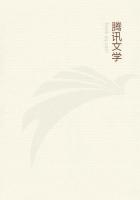*****
As Issachar went to his own chamber full of bitterness and indignation, he passed the door of Elissa's apartments, and came face to face with Metem issuing from them.
"Will the woman live?" he asked of him.
"Be comforted, worthy Issachar. I think so; that is, if the bandage does not slip. I go to tell the prince."
"Gladly would I give a hundred golden shekels to him who brought me tidings that it had slipped and the woman with it, down to the arms of her father Beelzebub," broke in the Levite passionately.
"Pretty words for a holy man," said Metem, feigning amazement. "Well, Issachar, I will do most things for good money, but to shift that bandage would be but murder, and this I cannot work even for the gold and to win your favour."
"Fool," answered Issachar, "did I ask you to do murder? I do not fight with such weapons; let the woman live or die as it is decreed. Nay, enter my chamber, for I would speak with you, who are a cunning man versed in the craft of courts. Listen now: I love this prince Aziel, for I have reared him from his childhood, and he has been a son to me who have none. More, I am sent hither to this hateful land to watch him and hold him from harm, and for all that chances to him I must account. And now, what has chanced? This woman, Elissa, by her witcheries----"
"Softly, Issachar; what witcheries does she need beyond those lips and form and eyes?"
"By her witcheries, I tell you, has ensnared him so that now he swears that he will wed her."
"What of it, Issachar? He might travel far to find a lovelier woman."
"What of it, do you ask, remembering who he is? What of it, when you know his faith, and that this fair idolater will sap it, and cause him to cast away his soul? What of it, when with your own ears you heard him swear to love her through all the deeps of life and death? Man, are you mad?"
"No, but some might say that you are, holy father, who forget that I am also of this religion which you revile. But for good or ill, so the matter stands; and now what is it that you wish of me?"
"I wish that you should make it impossible that the prince Aziel should take this woman to wife. Not by murder, indeed, for 'thou shalt not kill,' saith the law, but by bringing it about that she should marry the king Ithobal, or if that fail, in any other fashion which seems good to you."
"'Thou shalt not kill,' saith your law; tell me then, Issachar, does it say also that thou shalt hand over a woman to a fate that she chances to hold to be worse than death? Doubtless it is foolish of her, and we should not heed such woman's folly. Yet this one has a certain strength of will, and I question if all the elders of the city will bring her living to the arms of Ithobal."
"It is nought to me, Metem, if she weds Ithobal, or weds him not, save that I do not love this heathen man, and surely her temper and her witcheries would bring ruin on him. What I would have you do is to prevent her from marrying Aziel; the way I leave to you."
"And what should I be paid for this service, holy Issachar?"
The Jew thought and answered, "A hundred golden shekels."
"Two hundred gold shekels," replied Metem reflectively, "nay, I am sure you said /two/ hundred, Issachar. At least, I do not work for less, and it is a small sum enough, seeing that to earn it I must take upon myself the guilt of severing two loving hearts. But I know well that you are right, and that this would be an evil marriage for the prince Aziel, and also for the lady Elissa, who then day by day and year by year must bear the scourge of your reproaches, Issachar.
Therefore I will do my best, not for the money indeed, but because I see herein a righteous duty. And now here is parchment, give me the lamp that I may prepare the bond."
"My word is my bond, Ph?nician," answered the Levite haughtily.
Metem looked at him. "Doubtless," he said, "but you are old, and this is--a rough country where accidents chance at times. Still, the thing would read very ill, and, as you say, your word is your bond. Only remember, Issachar, two hundred shekels, bearing interest at two shekels a month. And now you are weary, holy Issachar, with plotting for the welfare of others, and so am I. Farewell, and good dreams to you."
The Levite watched him go, muttering to himself, "Alas that I should have fallen to such traffic with a knave, but it is for your sake and for your soul's sake, O Aziel my son. I pray that Fate be not too strong for me and you."
*****
For two days from this night Elissa lay almost senseless, and by many it was thought that she would die. But when Metem saw her on the morning after she had been wounded, and noted that her arm was but little swollen, and had not turned black, he announced that she would certainly live, whatever the doctors of the city might declare.
Thereon Sakon, her father, and Aziel blessed him, but Issachar said nothing.
As the Ph?nician was walking through the market-place early on the next day an aged black woman, whom he did not know, accosted him, saying that she had a message for his ear from the king Ithobal who was camped without the city and who desired to see the merchandise that he had brought with him from the coasts of Tyre. Now Metem had already sold all his wares at a great advantage; still, as he would not neglect this opportunity of trade, he purchased others from his fellow merchants, and loading two camels with them, set out for the camp of Ithobal, riding on a mule. By midday he had reached it. The camp was pitched near water in a pleasant grove of trees, and on one of these not far from the tent of Ithobal Metem noted that there hung the body of a black dwarf.
"Behold the fate of him who shoots at the buck and hits the doe. Well, I have always said that murder is a dangerous game, since blood calls out for blood," thought Metem as he rode towards the tent.
At its door stood king Ithobal looking very huge and sullen in the sunlight. Metem dismounted and prostrated himself obsequiously.
"May the King live for ever," he said, "the great King, the King to whom all the other kings of the earth are as the little gods to Baal, or the faint stars to the sun."















